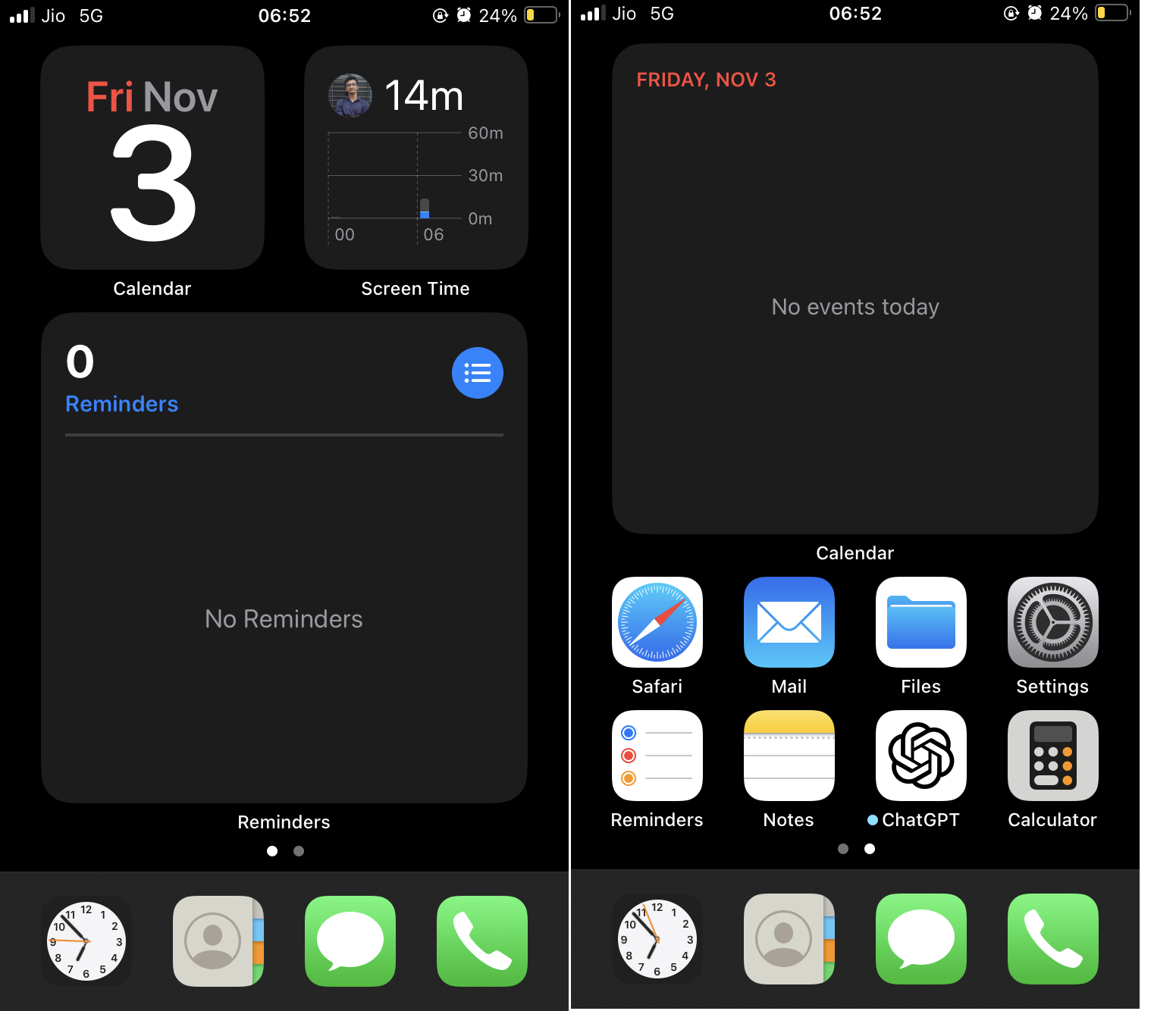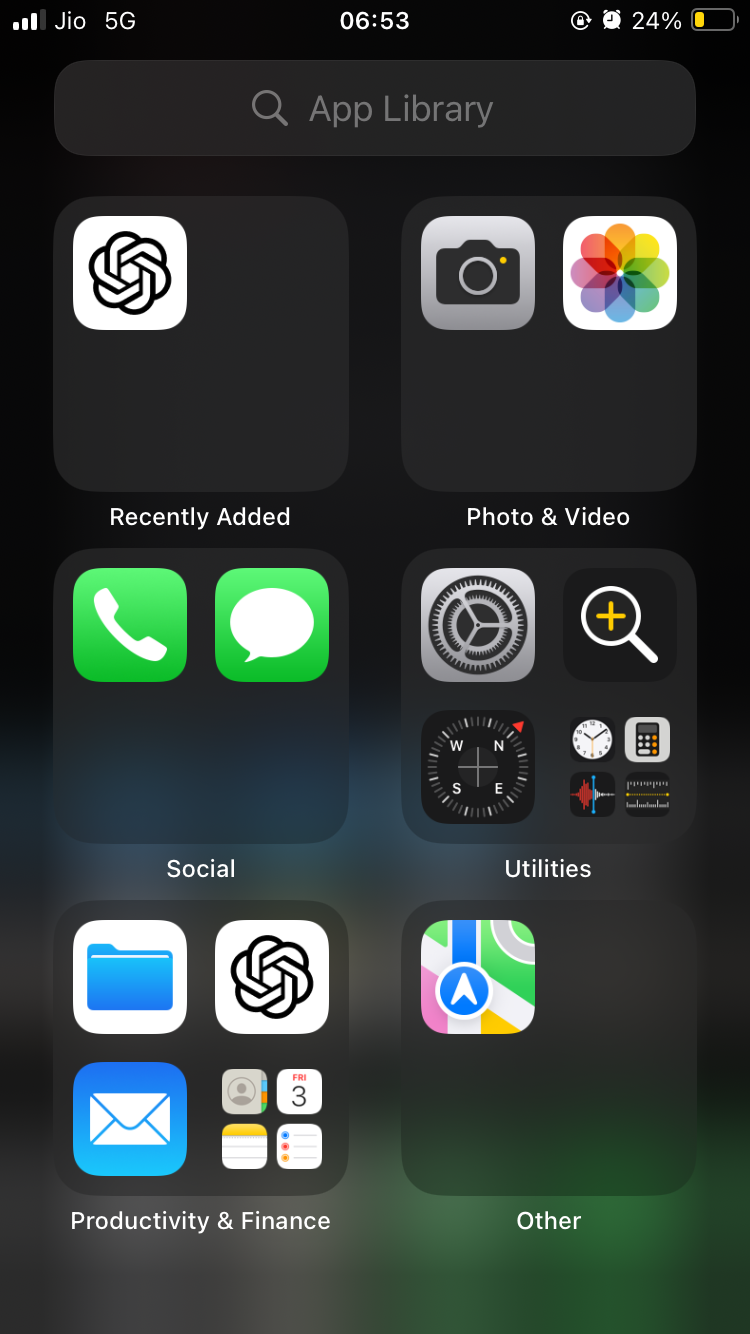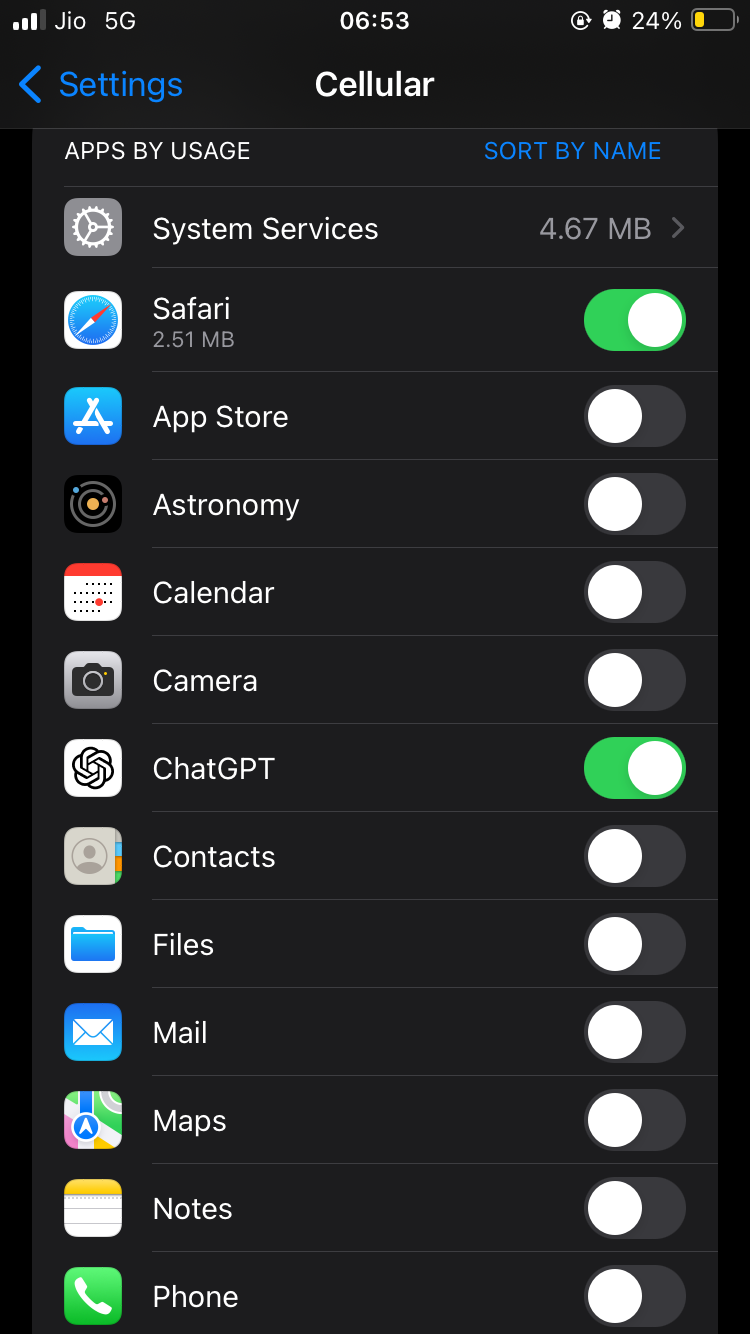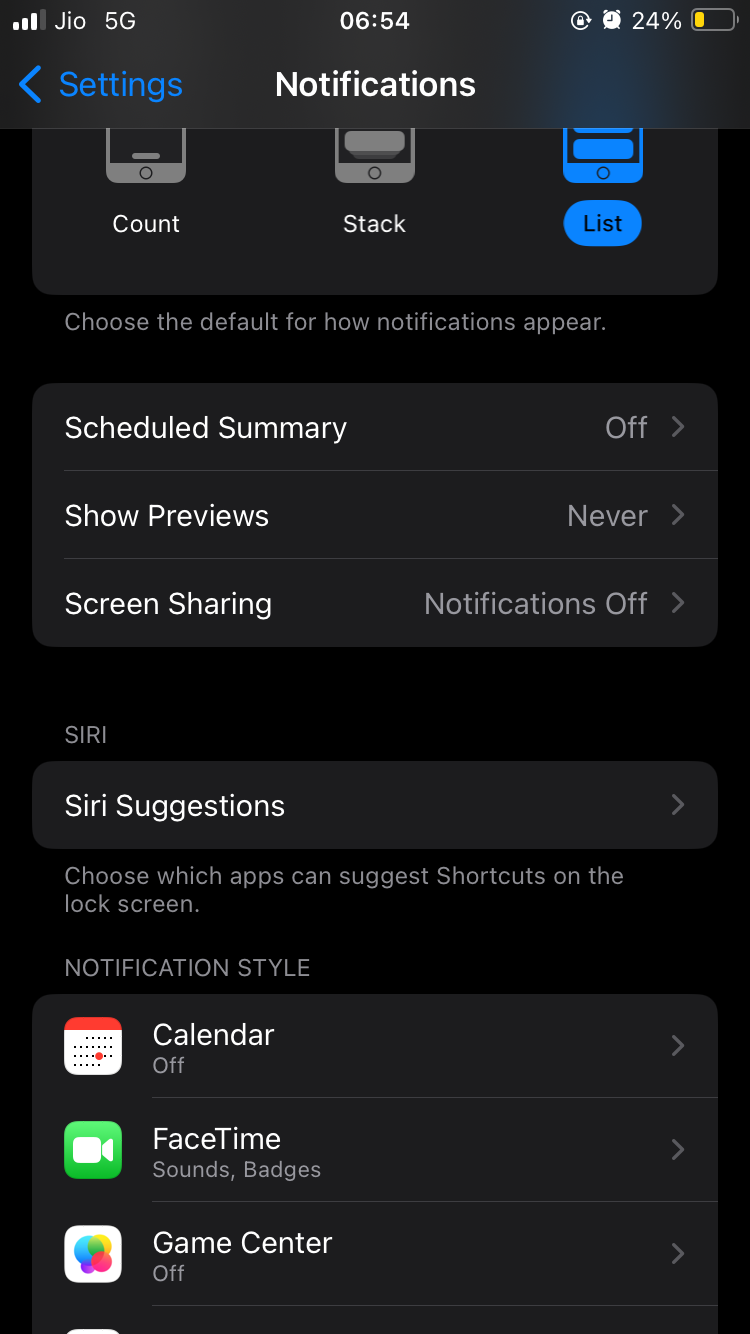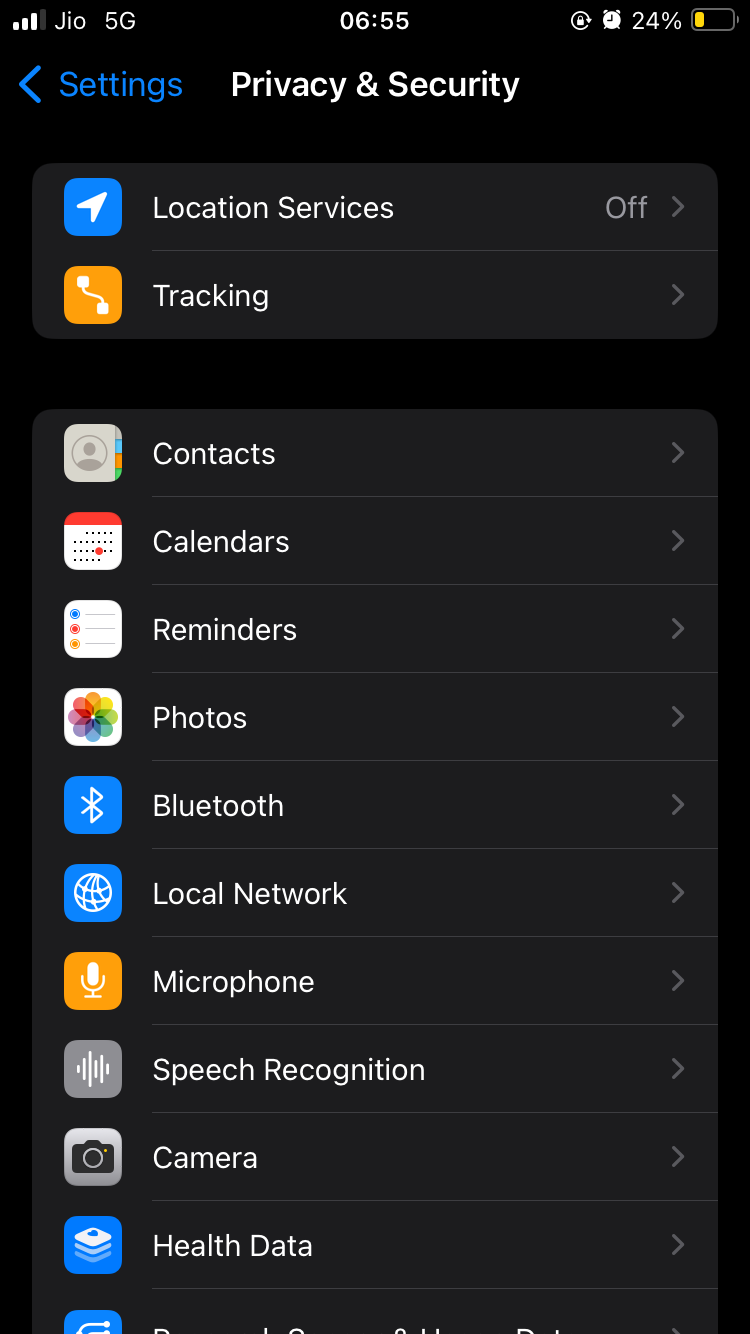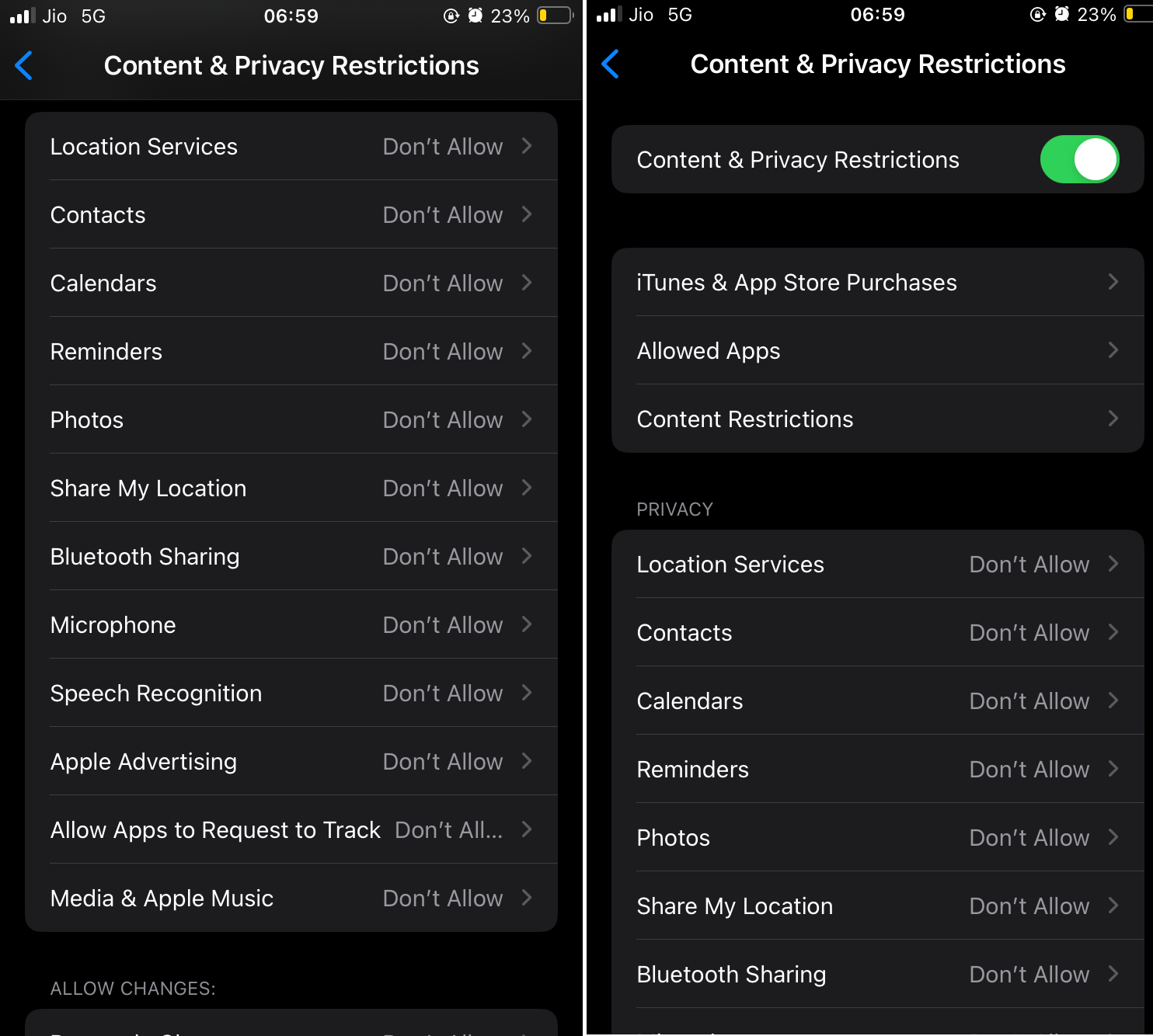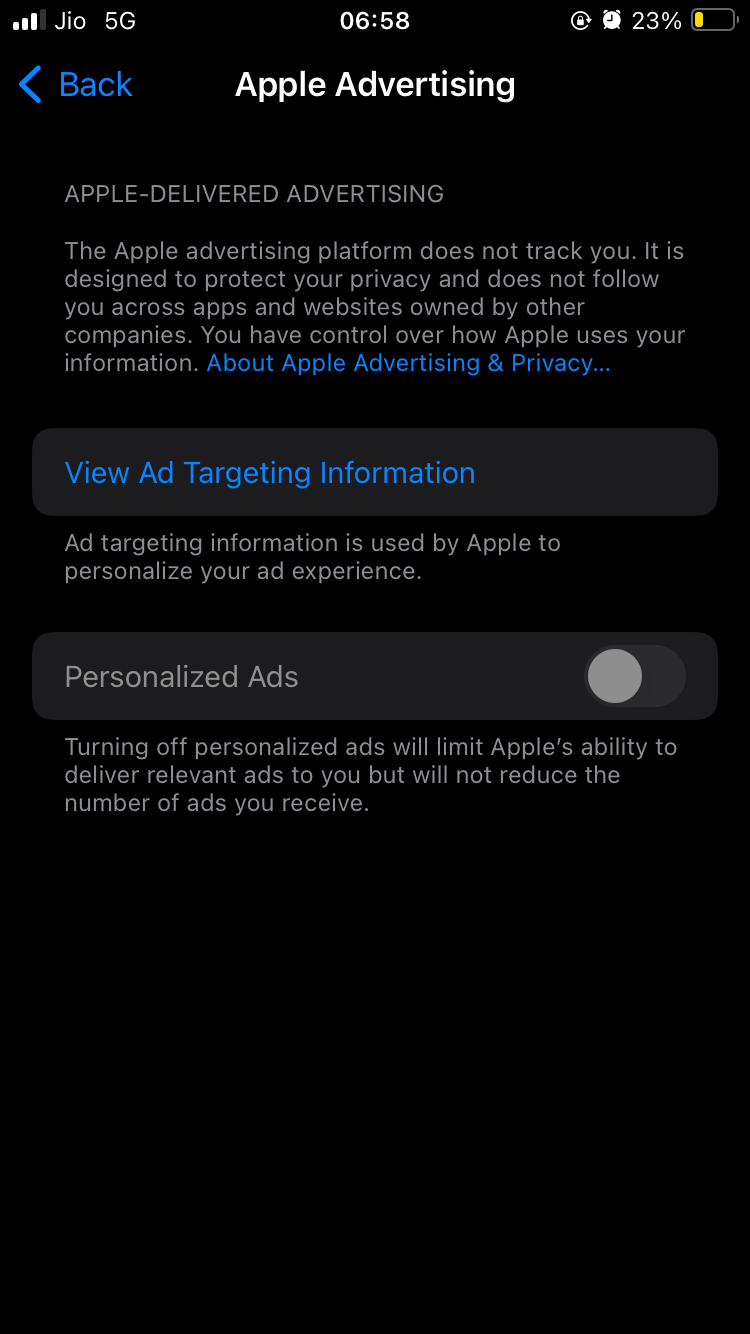I don't view them as smartphones; I consider them oversmart-phones. Thankfully, I've been using the internet since I was 12, so I've observed the drastic changes it has undergone. The internet has essentially become a dead space. For instance, if I want to find out if a MacBook is a good purchase, I find it more useful to search for 'Why MacBooks suck.' It may not be straightforward, but it helps me navigate the manipulative nature of the internet.
I prefer to maintain a high level of privacy, particularly when it comes to my personal life:
Phone Usage: I use my phone only for basic needs. I might use the Safari browser with cookies turned off, but I set a time limit for that as well.
Music: Much like genes passed down, my mom's love for music is embedded in my DNA. I predominantly play songs from my devices instead of streaming them online. Those online song recommendations based on location or trends? They simply don't resonate with me. After all, since music influences the brain, I prioritize listening to what I find good over what everyone else is listening to.
Banking: Given my finance background, I understand how banking works. I prefer to use cash for transactions, especially for local shopping.
SMS: I prefer text messages over calls or emails. However, my SMS app doesn't have notifications enabled; it only shows a badge.
Calls: I purchased the 'CEO' ringtone from iTunes and have no intention of changing it in the future. I bought it because iPhones have restrictions on setting ringtones, and I wanted something boring yet professional in case it rings during a meeting.
Screen Time: My daily phone screen time doesn't exceed 2 hours.
Shopping: I don't shop from my phone; for that, I use a tablet and access the desktop version of websites instead of apps.
Emails: I don't have email set up on my iPhone.
Social Media: I have a firm 'no' policy for social media on my phone.
Apps on My iPhone
Didn't you ever wonder why they say Install the app right now!
Privacy begins with minimizing the number of apps used, as apps are a major source of privacy threats.
How companies trick people ending up sharing data:
- Pre-checking boxes that grant data access during installation or onboarding.
- Placing the 'Agree' or 'Accept' buttons in more prominent positions than the 'Decline' or 'Opt-Out' buttons.
- Concealing important details in footnotes or using small fonts.
- Getting access to Contacts, Phone logs, Location, Media, and others although the app may not need it.
Keep it clean
- I only keep apps that I use at least once a week.
- I have removed almost all default apps provided by Apple(Including iMusic, iTunes, TV, and many more); thank you Apple, for making it easier unlike Android phones.
- Exceptions include a few apps that require extra setup time, possibly for authentication or security reasons; for example, banking apps that require verification.
- Social media apps? Nah, not on my phone.
- I do not want banks to track my expenses or know my preferences🙂 I usually have cash on me, but if I have to go digital, it's with an official bank app. No third-party stuff.
Cellular Data
Data is important, so why would we allow apps to track us around the clock?
I see no reason why apps should have internet access when we are not using them.
Here are some tips for protecting your data:
- Read privacy policies carefully before granting any app access to your data. (At least skim through them.)
- Only grant apps access to the data they require to function.
- Regularly review the permissions you have granted to apps and revoke any that are no longer needed.
- I use nothing but the Safari browser, with cookies turned off. Learn more
The most important thing you can do to protect your data is to disable cellular data access for apps when you are not using them. This prevents background tracking.
How Your Data Can Be Used
Assume I am your banking app. I know where you spend your money because transactions are linked to your identity. I know where you live and can gather information about that locality from other devices to understand your social status and spending ability.
Social Media: Believe it or not, these platforms know more about you than you may realize. Try an experiment: stalk a few people on, say, Facebook, and ask a friend to let you look at their YouTube account. You'll find out a lot about their interests, political views, and almost everything about their personality. My YouTube Account
- Microtargeting Voters: Political campaigns can use location and usage data to microtarget voters with ads and messages.
- Location-based Ads: Apps with access to your location can track your movements and show you targeted ads based on your location.
- Usage-based Ads: Apps can track your usage habits and show you targeted ads based on your activities.
- Selling Your Data to Third Parties: Companies can sell your location and usage data to third parties, such as advertisers, data brokers, and other companies. If they are selling this data, they will always want more.
They Don't Need Notification Access
Why are e-commerce, bank apps, and social media always in a rush for notification access?
The Role of Notifications and Why You Should Restrict App Access
- Banks: Most banks, at least my bank, try to lure me in for credit cards. For me, a credit card is a dangerous chip :)
- E-commerce Sites: They're always trying to give you FOMO with phrases like "Hurry up! Buy now!" and emojis that grab your attention 😲🥳🤩.
- Notifications: They take up unconscious space in your brain; it's like they're indirectly showing you ads.
Input Devices Access
Hey, I'm not handing over control of my camera or mic to any app unless I absolutely have to, okay?
- Contacts: So like, WhatsApp and those banking and social media apps want to peep my contacts? Nah, they don't need to know.
- Microphone: WhatsApp needs my mic 'cause I'm always on international calls. But once I hang up, that access is gone. Bye!
- Phone Logs: Truecaller wants in? Sure, it's cool, but I'm not stressing over calls. If you're not in my contacts, my phone stays silent. I'll look you up later.
- SMS: Some apps beg for SMS access, but I'm like, "No way, Jose."
- Media: Why would I let an app go through my pics? I'd rather share them myself.
- Location: No need to explain. I'm not telling any app where I am. Period.
- Camera: Don't like random selfies. But for QR codes? Maybe. Then it's back to no-access land.
- Notification: Except for basic stuff like SMS and calls, no app's buzzing my phone.
- Calendar: I've got plans, sure, but they're my plans. Apps, stay out.
- Storage: It's tricky with storage 'cause apps gotta save stuff. But on my iPhone, I'm good. Androids? Not so much.
- Photos: My photos are my business; iCloud doesn't even come close
Apple's Connection to Gravity, but Not to Siri
I've found that Apple is far superior to Android's APK offerings. Believe it or not, I avoid using Google products as much as possible. Google is primarily an advertising company, whereas Apple is not—at least not yet. However, that doesn't mean I fully trust Apple Corporation.
I keep location services turned off for all apps, including Apple Maps.
- Siri: Why let Siri learn from the app?
- iTunes: No thanks!
- iCloud: No thanks! In a world full of inexpensive storage, why should I opt for renting? I have no craving for entertainment, and I prefer local backups. 🙌
- Apple Music: I've downloaded songs; I prefer to keep files rather than rent songs through any app.
- Apple TV: I have no time for entertainment. You are what you consume, so make sure to engage with content that enriches you.
- Apple Ads: No way!, I don't need personalized ads.
- Wallet: Seriously? Why should I let any app keep track of my expenses?
- App Store: A major revenue source for Apple; sorry, I can't be your product. I try not to install apps unless absolutely necessary, preferring websites instead.
- Health Data: No thanks!
- Motions: Okay, but what?
I don't use Apple's official apps, yes, I'm aware of the deal between Google and Apple, but then asking me whether Google is my default search engine is irrelevant. I don't use any Google apps on my phone, nor do I use them on my Android tablet. In fact, my Android tablet doesn't even have the Google Play Store installed. Additionally, I have disabled Google Services in the settings.
Navigating Choices & Trade-Offs
The decisions I've made regarding my smartphone usage are a reflection of my personal priorities, particularly my concern for privacy. These choices aren't prescriptions for how everyone should use technology. I'm fully aware that today's technological landscape is a complex web of trade-offs. For instance, using products from companies like Google, which offer a broad range of services that can handle everything from searching for a song stuck in your head to navigating unfamiliar roads, means tacitly agreeing to certain data collection policies intended to refine their services. While I have my reservations, I don't deny the legitimacy of these practices, as long as they're conducted transparently and with informed consent from the users. My strategy is to strike a balance between the convenience technology offers and the privacy I desire.
Disclaimer
The views and choices expressed in this article are my own and are intended to shed light on my approach to privacy and technology. They are not meant to be prescriptive or advisory in nature for anyone else.
